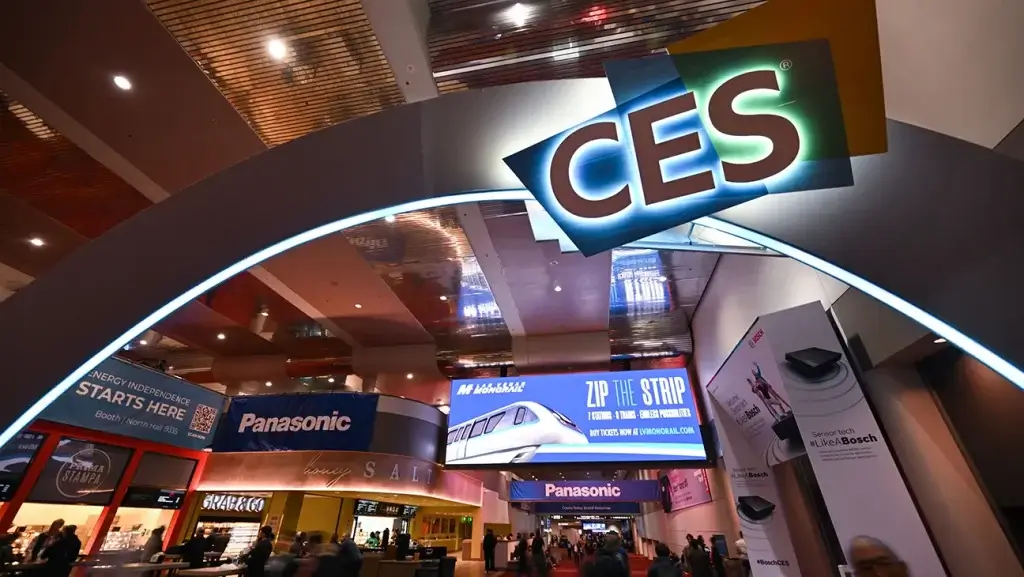Unlocking the Future: CES 2025’s Top Business Innovations
As we step into the future, CES 2025 has unveiled a remarkable array of business innovations set to redefine the landscape across diverse industries. This year’s event brought to the forefront pioneering developments, such as AI-driven business solutions designed to democratise technology for small and medium enterprises without hefty investments. In this document, we will delve into the transformative potential of advanced computing hardware, the operational efficiency promised by autonomous machinery, and the seamless smart home integration that enhances both convenience and productivity. Additionally, cutting-edge innovations like Munbyn’s label printing technology are poised to streamline logistics and inventory management. Join us as we explore how these advancements, alongside the broader spectrum of CES 2025 innovations, are poised to drive growth, improve efficiency, and usher in a new era of business operations.
AI-Driven Business Solutions
Affordable AI Tools for SMEs
CES 2025 spotlighted affordable AI tools that promise to transform small and medium enterprises (SMEs). These tools are designed to enhance productivity and streamline decision-making processes without incurring prohibitive costs. By leveraging AI, SMEs can automate repetitive tasks, analyze data for insights, and optimize operations, allowing business owners to focus on strategic growth areas. Exhibitors presented AI solutions that offer user-friendly interfaces and customizable features, enabling businesses to tailor the technology to their specific needs. Additionally, these tools often come with cloud-based platforms, ensuring scalability and flexibility for growing businesses. This democratization of AI technology empowers SMEs to compete more effectively with larger corporations by providing access to innovative solutions that improve efficiency and reduce overhead costs. As a result, SMEs can enhance their competitive advantage and drive business growth.

Democratizing Access to Technology
At CES 2025, democratizing access to technology emerged as a pivotal theme within AI-driven business solutions. By making advanced tech tools more accessible, small and medium enterprises (SMEs) can now harness capabilities previously reserved for large corporations. This shift is crucial in leveling the playing field, allowing smaller businesses to innovate and operate more efficiently. With affordable AI platforms, SMEs can automate processes, enhance customer engagement, and derive meaningful insights from data. These tools are often user-friendly and require minimal technical expertise, making them accessible to a broader audience. Furthermore, the integration of cloud-based services ensures that these technologies are scalable, allowing businesses to adapt as they grow. This empowerment through technology not only fosters innovation but also propels SMEs towards achieving greater market competitiveness. Ultimately, democratizing technology is about enabling all businesses to thrive in an increasingly digital economy.

Advanced Computing Hardware
MSI’s Pro Series Innovations
MSI’s Pro Series innovations showcased at CES 2025 are set to revolutionize modern workspaces with their cutting-edge technology. The introduction of the Pro DP80AI2 desktop and the CUBI NUC AI+ 2M mini-PC highlights MSI’s commitment to providing powerful and compact computing solutions. The Pro DP80AI2 desktop features the latest Intel Core Ultra processor with AI support, designed to handle demanding business applications effortlessly. Its robust performance enables seamless multitasking and efficient data processing, crucial for businesses aiming to enhance productivity. The CUBI NUC AI+ 2M, on the other hand, offers a space-saving design without compromising on performance, making it ideal for small offices or remote work setups. Both products are equipped with advanced security features to protect sensitive business data. By integrating these innovative computing solutions, businesses can optimize their operations and stay ahead in an increasingly competitive landscape.
Compact Powerful Business Solutions
The trend towards compact and powerful business solutions was prominently featured at CES 2025, reflecting the growing need for efficient use of space without sacrificing performance. Such solutions are particularly beneficial for small and medium enterprises (SMEs) that require high-performance computing in a limited workspace. Devices like MSI’s mini-PCs exemplify this trend by offering robust processing capabilities in a small form factor. These compact systems are equipped with the latest processors and ample memory, ensuring they can handle complex business applications and multitasking needs. Their small size also facilitates easy integration into existing office setups, making them ideal for businesses looking to modernize their IT infrastructure without extensive overhauls. Additionally, these devices often come with energy-efficient designs, reducing operational costs and contributing to sustainability goals. By opting for compact yet powerful computing solutions, businesses can enhance their operational efficiency while optimizing their workspace.

Autonomous Machinery for Efficiency
John Deere’s Autonomous Tractors
John Deere’s autonomous tractors, unveiled at CES 2025, represent a significant leap forward in agricultural and construction machinery. These tractors are equipped with state-of-the-art computer vision, AI, and sensor technologies that enable them to operate autonomously, addressing critical labor shortages in industries like agriculture, construction, and landscaping. By automating routine tasks such as plowing, planting, and harvesting, these machines can drastically improve productivity and operational efficiency. Users can easily monitor and control tractor operations remotely, ensuring precision and reliability in their tasks. The integration of AI allows these tractors to adapt to varying field conditions and optimize their performance accordingly. Moreover, their use reduces the physical strain on laborers and minimizes human error, leading to improved crop yields and project outcomes. John Deere’s innovation underscores the potential for autonomous machinery to transform traditional industries, setting new standards for efficiency and productivity.
Enhancing Productivity with AI
AI-enhanced productivity was a focal point at CES 2025, especially within the realm of autonomous machinery. By integrating AI into machines, businesses can significantly boost efficiency and accuracy in their operations. This technology enables machines to perform complex tasks with minimal human intervention, allowing employees to focus on higher-level strategic activities. AI-driven systems can analyze vast amounts of data in real-time, optimizing processes and predicting maintenance needs to prevent downtime. In industries like manufacturing and logistics, AI enhances productivity by streamlining workflows and improving resource allocation. For example, autonomous vehicles and drones equipped with AI can manage inventory, transport goods, and even conduct inspections. The precision and consistency provided by AI reduce waste and increase output quality, which is crucial for maintaining competitive advantage. Overall, AI in autonomous machinery is not just about replacing human labor but augmenting it to achieve higher productivity and innovation.
Smart Home and Office Integration
Seamless Connectivity Platforms
CES 2025 emphasized seamless connectivity platforms as a cornerstone of smart home and office integration. These platforms, like Samsung’s SmartThings and LG’s Athom, are designed to unify various smart devices, creating an interconnected environment that boosts convenience and productivity. By allowing different devices to communicate with one another, these platforms enable users to automate routines, enhance security, and optimize energy usage. For instance, lights, thermostats, and security systems can be controlled remotely or set to respond automatically to environmental changes. In office settings, such connectivity can streamline operations, facilitate communication, and improve energy efficiency, ultimately contributing to a more sustainable workplace. The intuitive interfaces of these platforms make them accessible to users of all technical abilities, ensuring that businesses and homeowners can maximize the benefits of their smart devices. As a result, seamless connectivity platforms are essential for creating efficient and responsive smart environments.
Comprehensive Automated Environments
Comprehensive automated environments were a highlight of CES 2025, showcasing the potential for smart technology to transform both homes and offices. These environments leverage interconnected devices to create seamless, automated settings that enhance user convenience and efficiency. For instance, in a smart home, lighting, climate control, and security systems can be programmed to interact based on user preferences or external conditions, thereby optimizing comfort and energy use. In office spaces, automated environments can facilitate workflows by integrating lighting, HVAC systems, and communication tools, which adapt to occupancy levels and time of day. Such automation not only reduces manual intervention but also contributes to sustainability by minimizing energy consumption and waste. Moreover, the ability to customize these environments through user-friendly interfaces ensures that they meet the specific needs of individuals and businesses alike. As these technologies evolve, comprehensive automated environments will increasingly define modern living and working spaces.

Cutting-Edge Label Printing Technology
Streamlining Logistics Operations
At CES 2025, Munbyn’s new label printing technology was highlighted as a key innovation for streamlining logistics operations. This advanced label printer is designed to handle large volumes of labeling tasks efficiently, making it ideal for businesses involved in extensive product handling. By automating the labeling process, companies can significantly reduce manual labor, minimize errors, and enhance overall operational efficiency. The printer’s capability to integrate with existing inventory management systems ensures seamless updates and real-time tracking of goods, which is crucial for maintaining accurate stock levels and timely order fulfillment. Additionally, the high-speed printing capability allows businesses to keep up with the fast-paced demands of logistics and supply chain operations. The user-friendly interface and compatibility with various software systems further simplify operations, enabling businesses to focus on strategic initiatives rather than routine tasks. Overall, Munbyn’s label printing technology represents a significant advancement in optimizing logistics processes.
Efficiency in High-Volume Labeling
Efficiency in high-volume labeling is critical for businesses handling large inventories, and CES 2025 showcased Munbyn’s label printing technology as a game-changer in this domain. This technology is specifically engineered to meet the demands of high-volume environments, offering rapid print speeds and precise label placement. By adopting such advanced printers, businesses can streamline their labeling processes, ensuring that products are accurately tagged and ready for distribution in a fraction of the time compared to manual methods. The reduction in labeling errors not only saves time but also reduces costs associated with mislabeling and product returns. Moreover, these printers are designed to effortlessly integrate with enterprise resource planning (ERP) systems, allowing for seamless data flow and real-time updates to inventory systems. This integration ensures that businesses maintain accurate stock levels and improve their supply chain efficiency, ultimately enhancing customer satisfaction and optimizing operational workflows.

Conclusion
In conclusion, CES 2025 has demonstrated that the future of business innovations is not just promising, but already unfolding. As we’ve seen, the democratization of AI technology is empowering SMEs to compete more effectively, while innovations in advanced computing are optimizing how businesses operate in constrained spaces. Autonomous machinery like John Deere’s tractors are setting new benchmarks in efficiency, reshaping industries from agriculture to logistics.
Smart home and office integration have highlighted the importance of interconnected environments, providing both convenience and new efficiencies that enhance everyday operations. Additionally, Munbyn’s label printing technology is revolutionizing logistical processes, ensuring that businesses can keep pace with the growing demands of the digital economy.
These advancements underscore how crucial it is for business leaders to stay informed and adaptable. By embracing these cutting-edge technologies, companies can drive growth, optimize operations, and maintain a competitive edge in their respective markets. As your trusted advisor, we encourage you to explore these opportunities and consider how they can align with and enhance your strategic goals. The future is now, and it’s full of potential for those ready to innovate and lead.
-
Empowerment: Encourage small businesses to leverage affordable AI for competitive advantage.
-
Optimization: Adopt advanced computing solutions to enhance productivity without enlarging your footprint.
-
Efficiency: Utilize autonomous machinery to tackle labor shortages and increase precision.
-
Integration: Prioritize seamless connectivity in your smart environments for maximum efficiency.
-
Innovation: Streamline operations with cutting-edge labeling technology to meet market demands.
Seize these innovations to propel your business into a new era of success.

